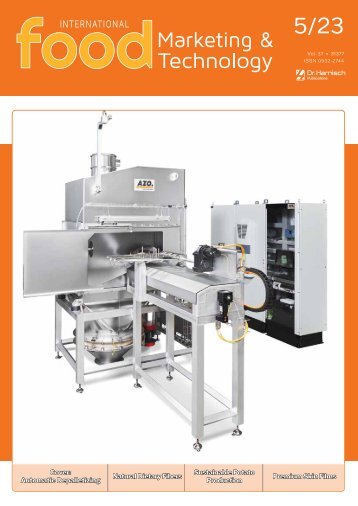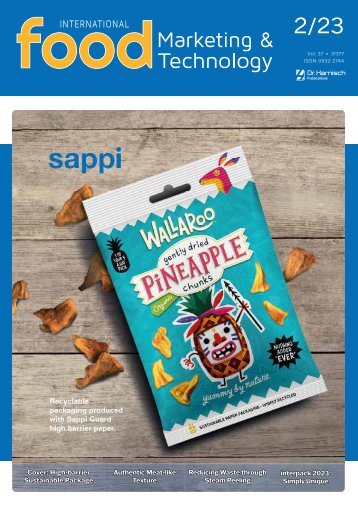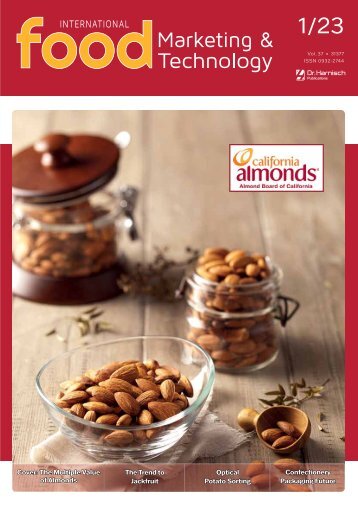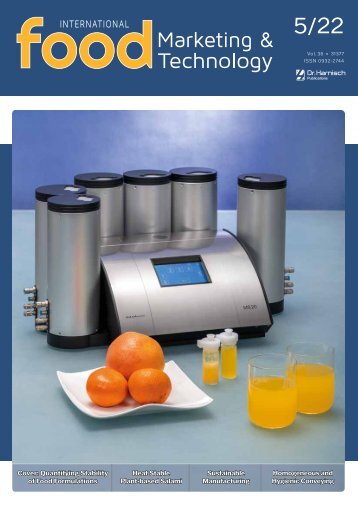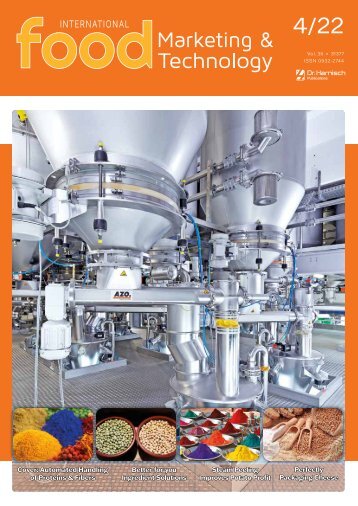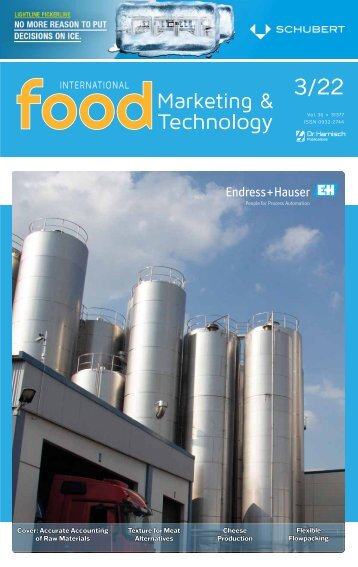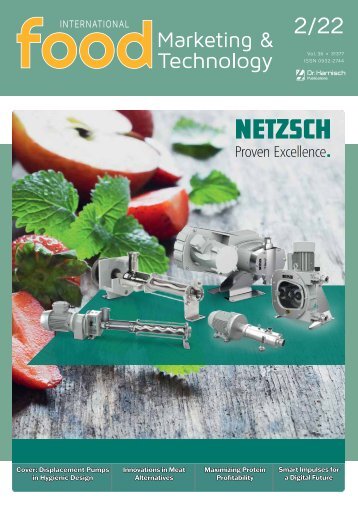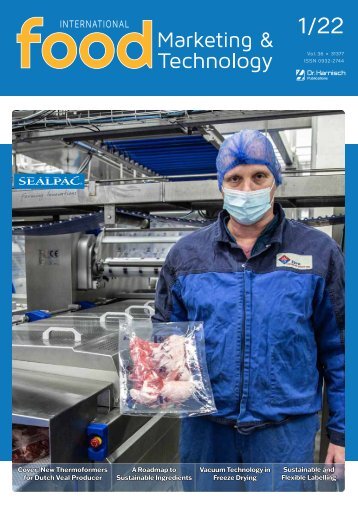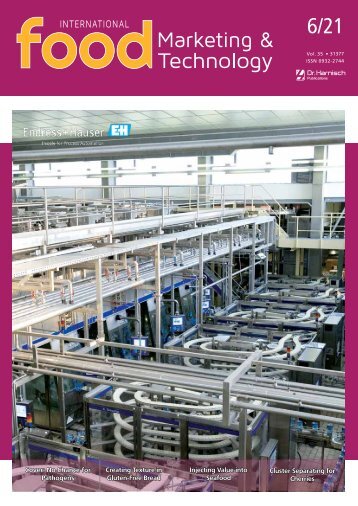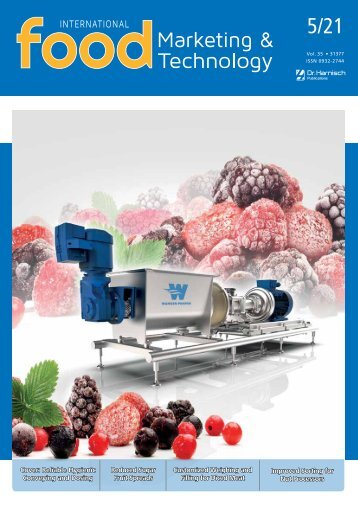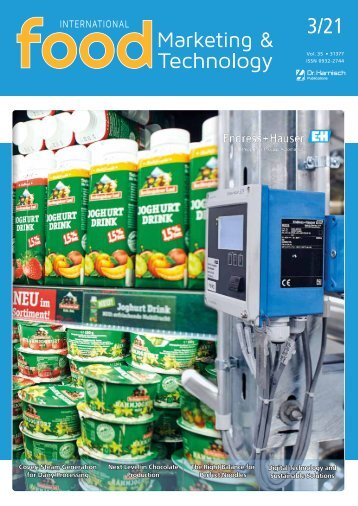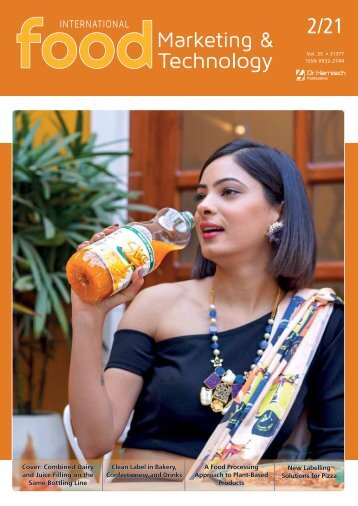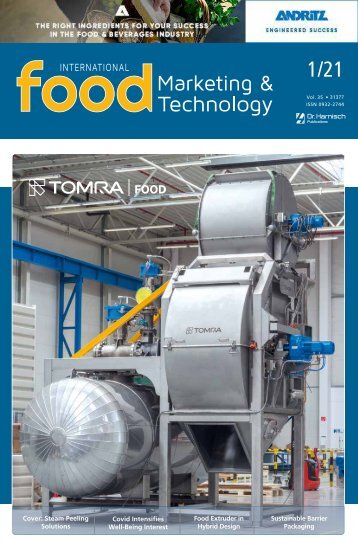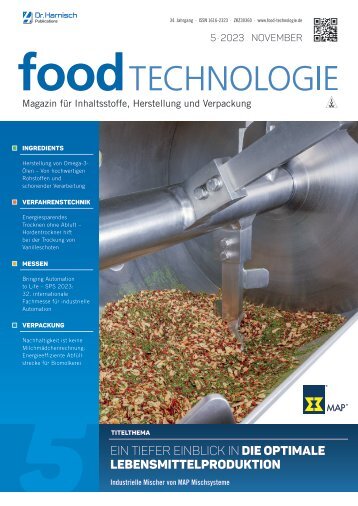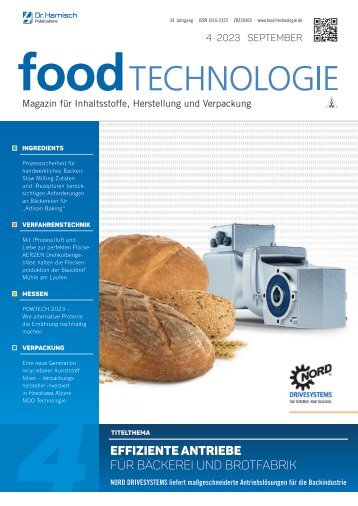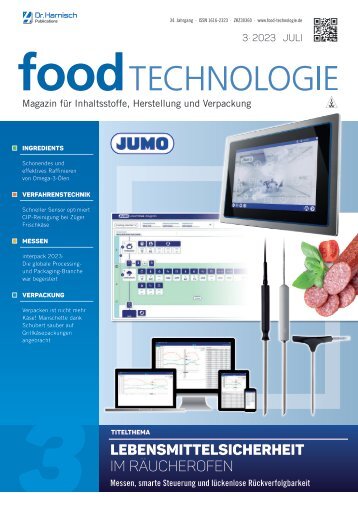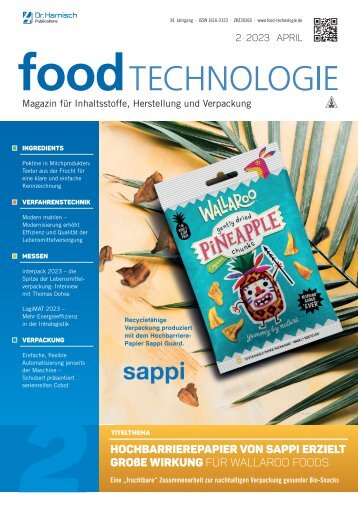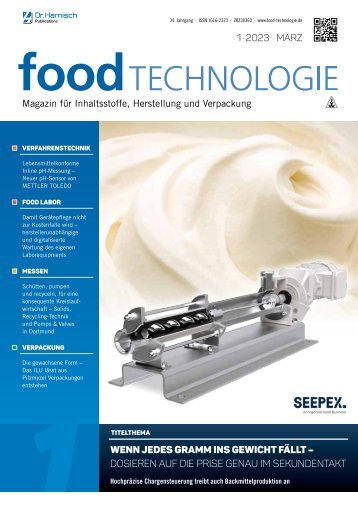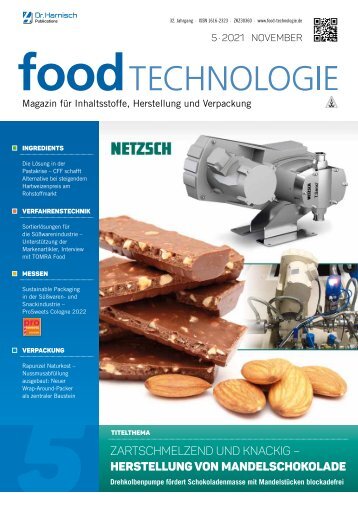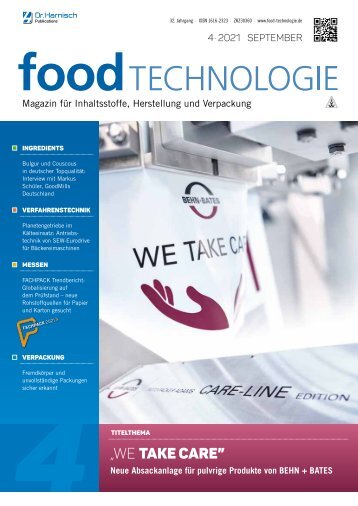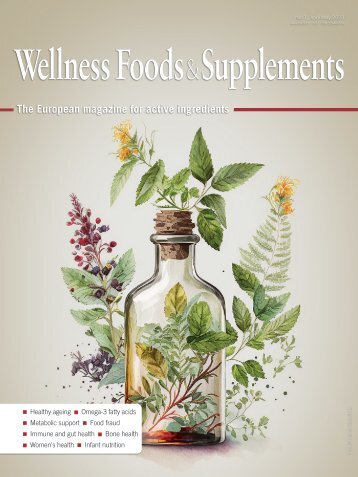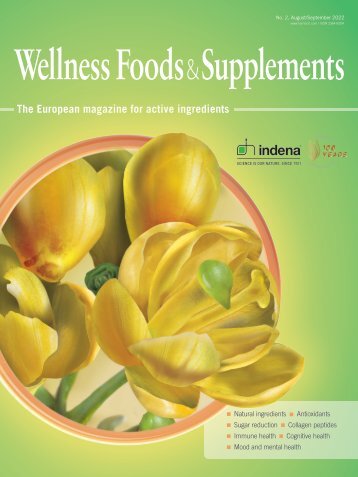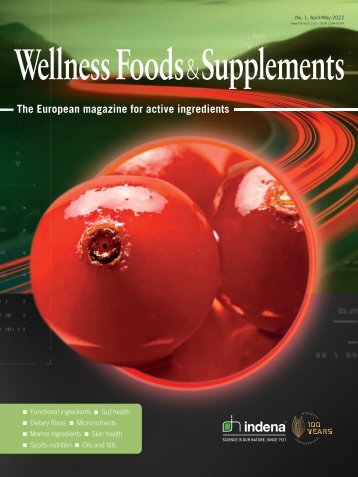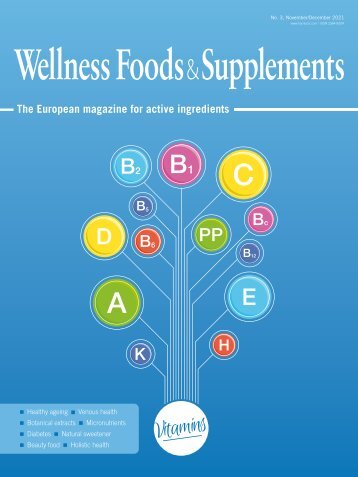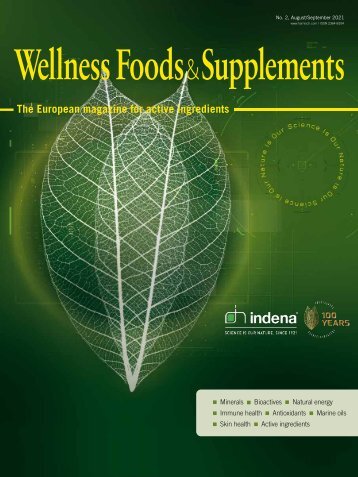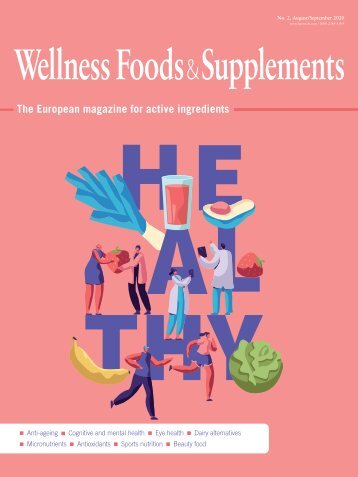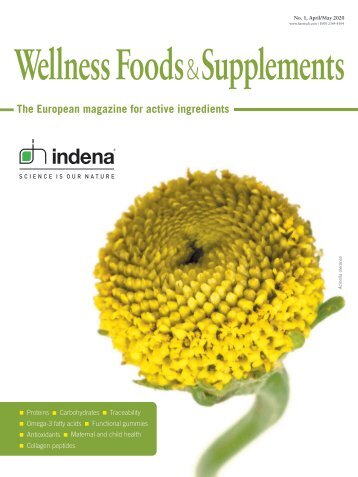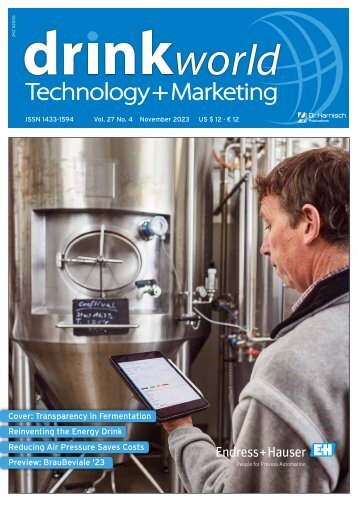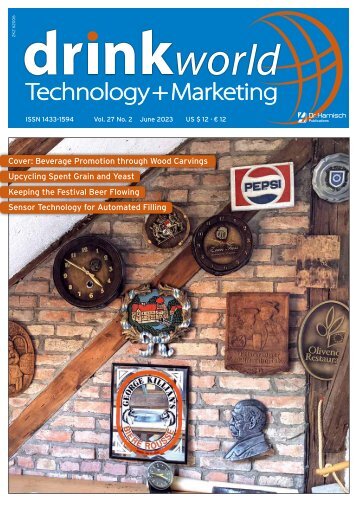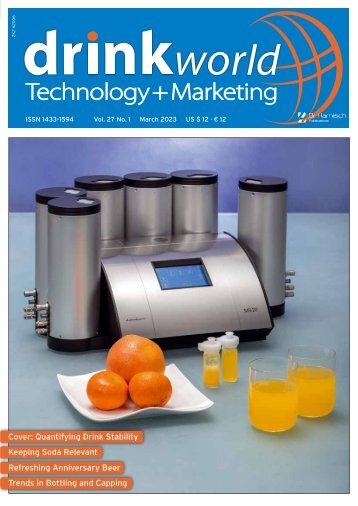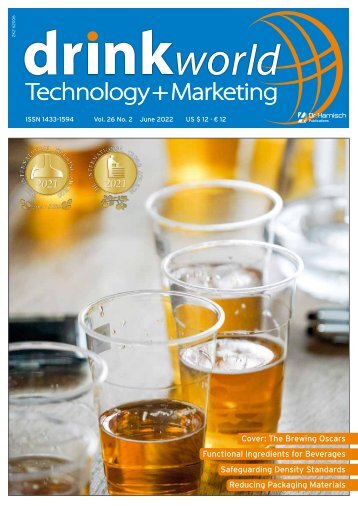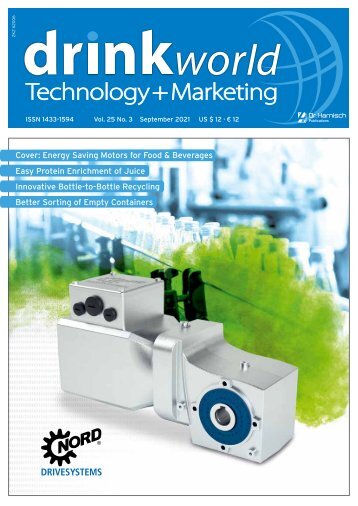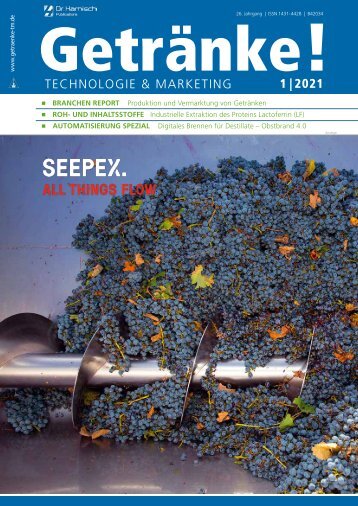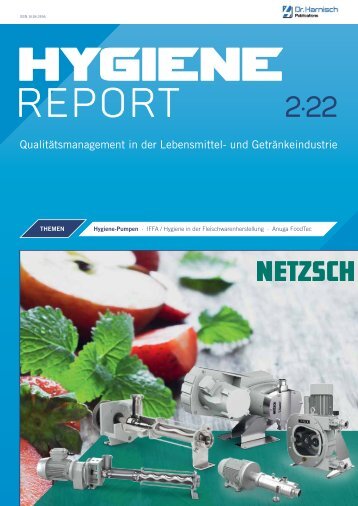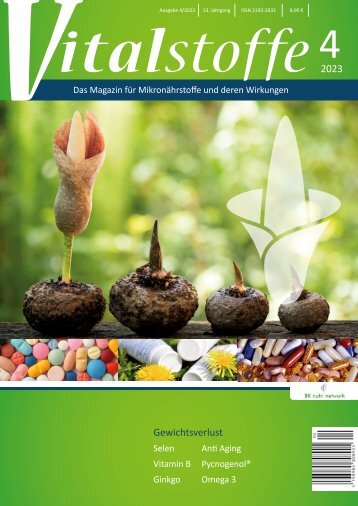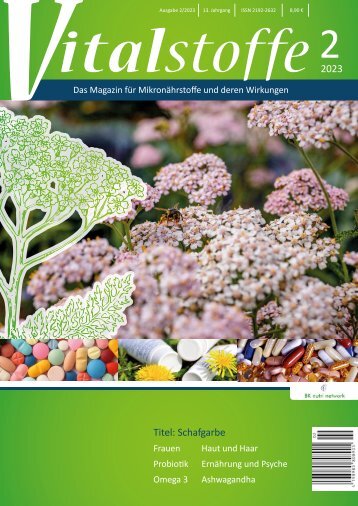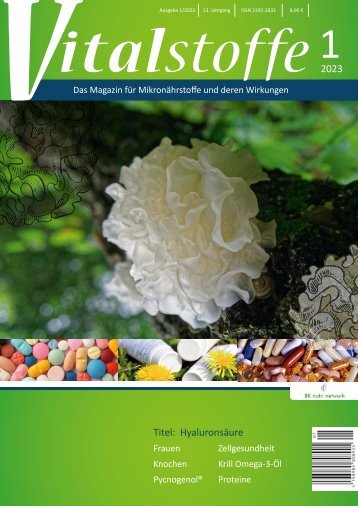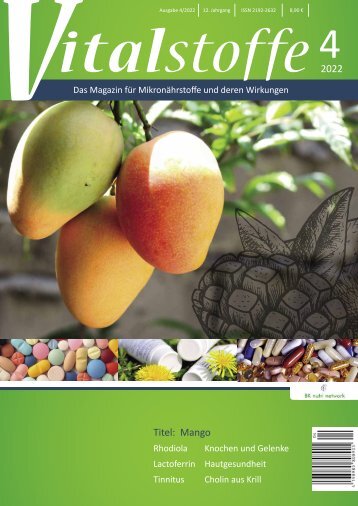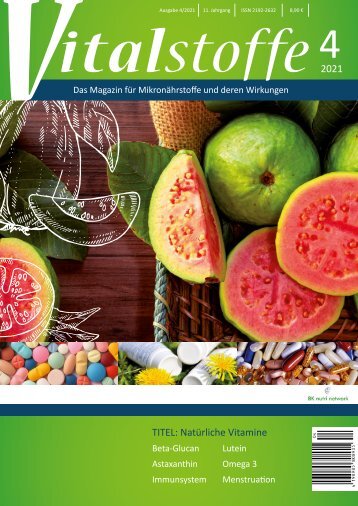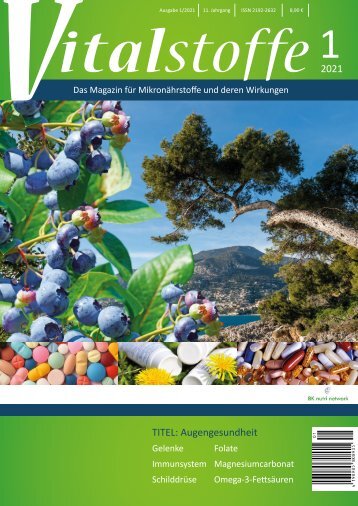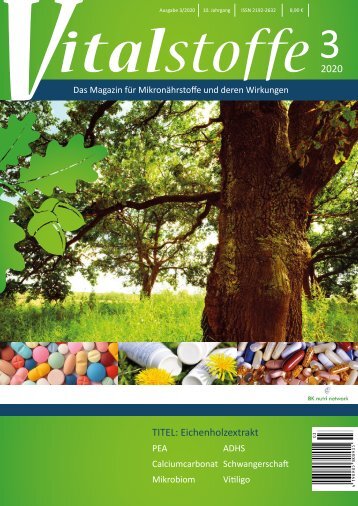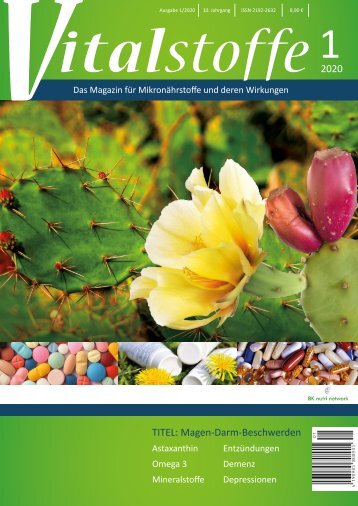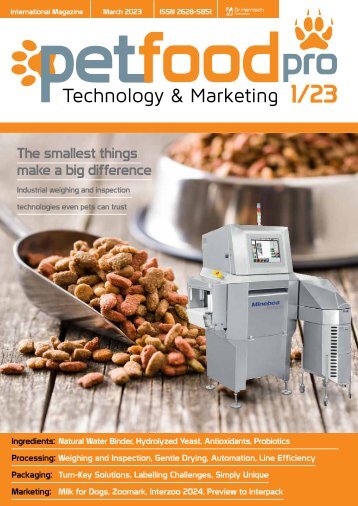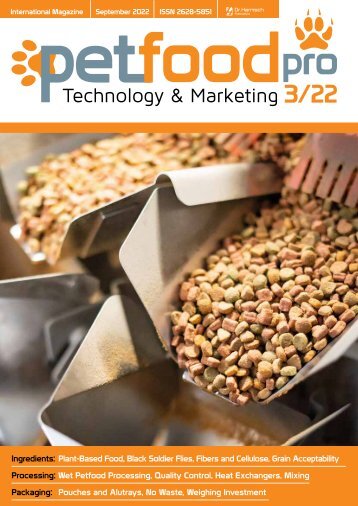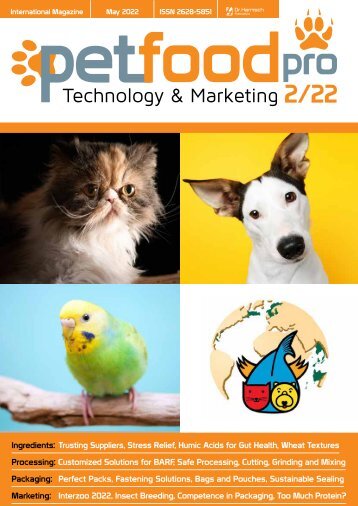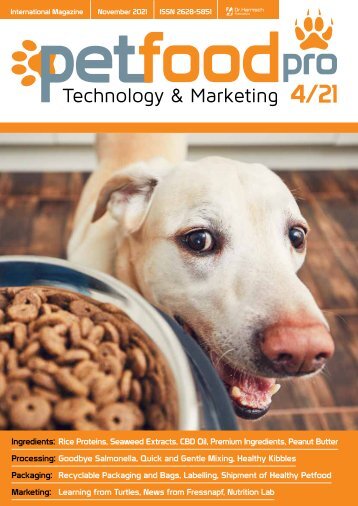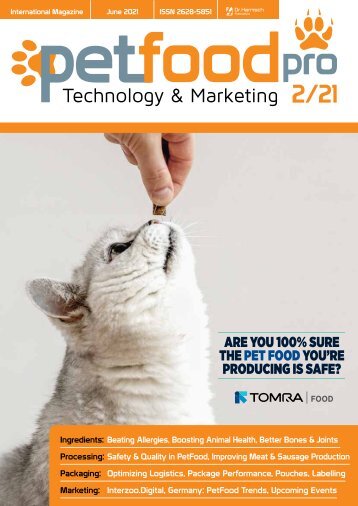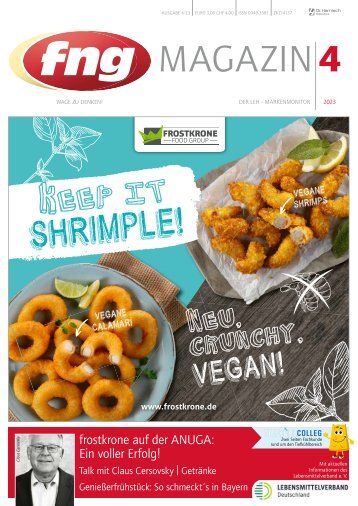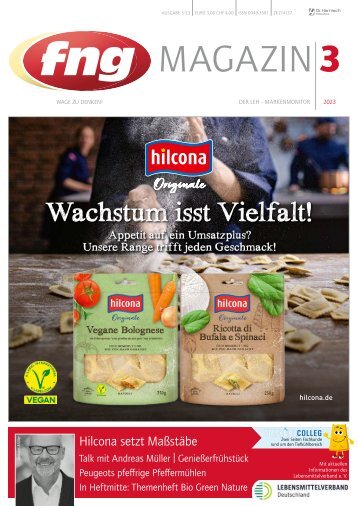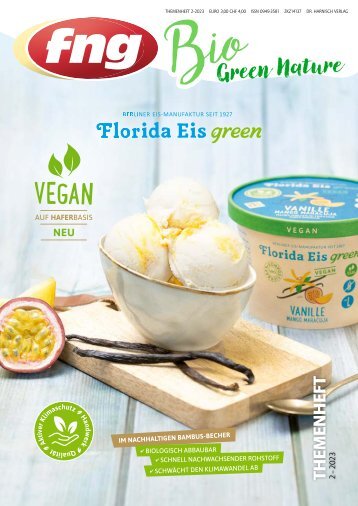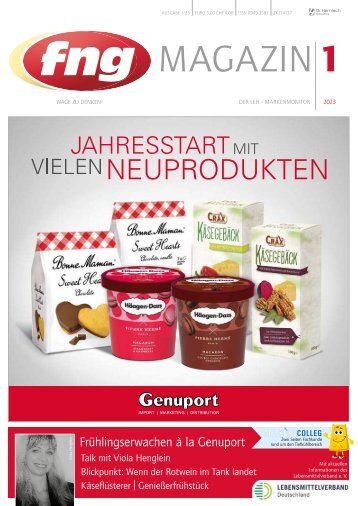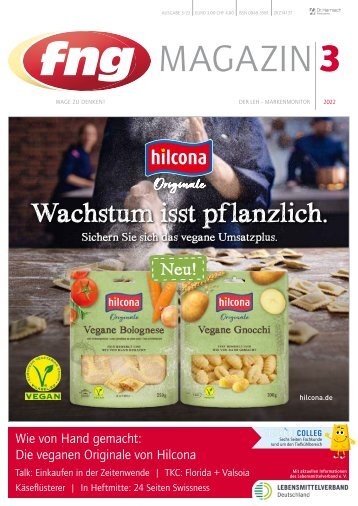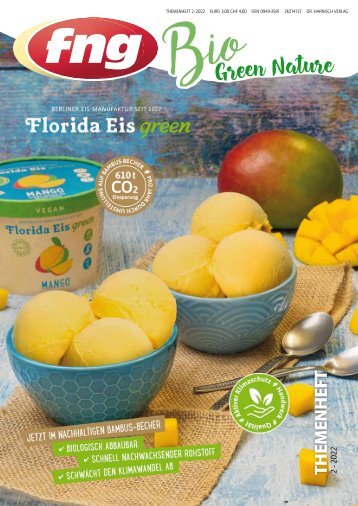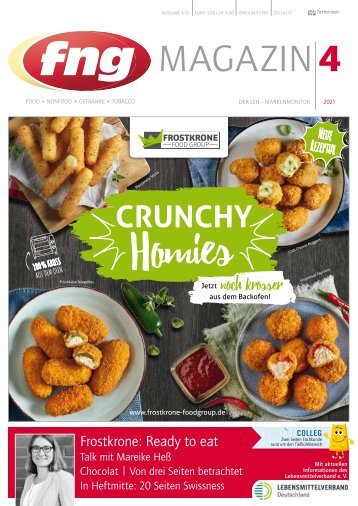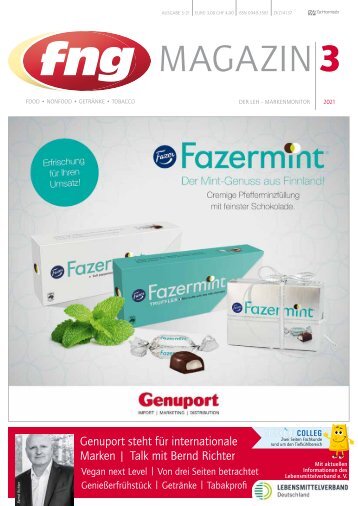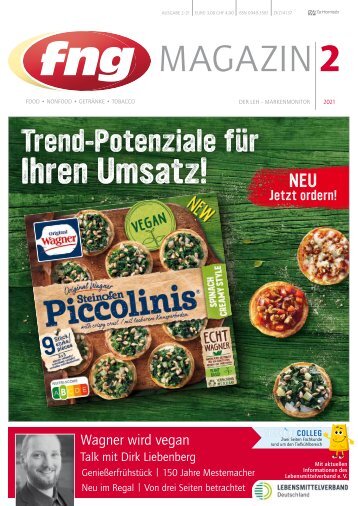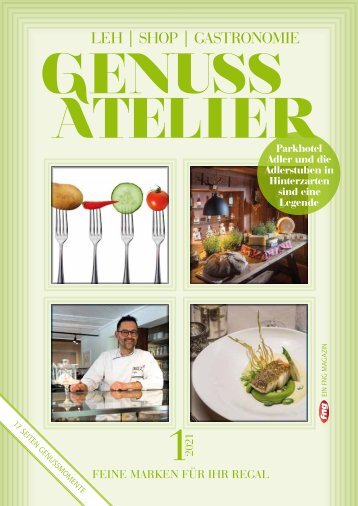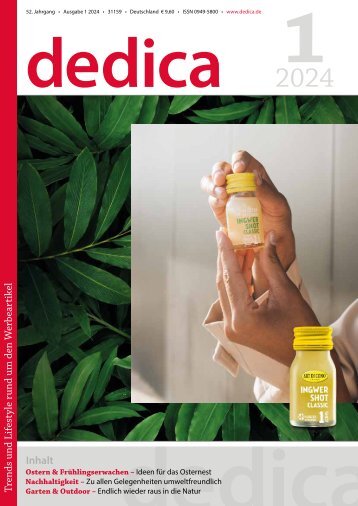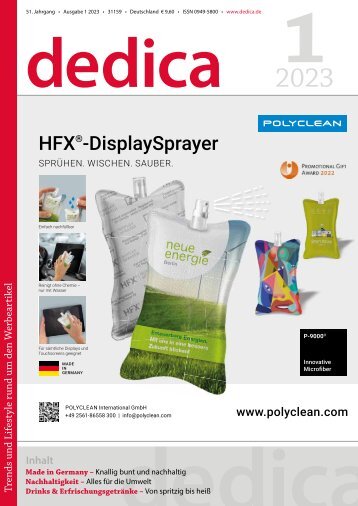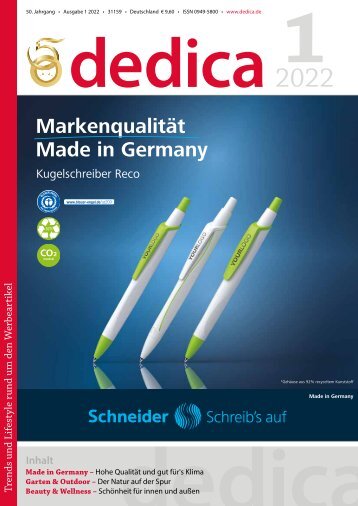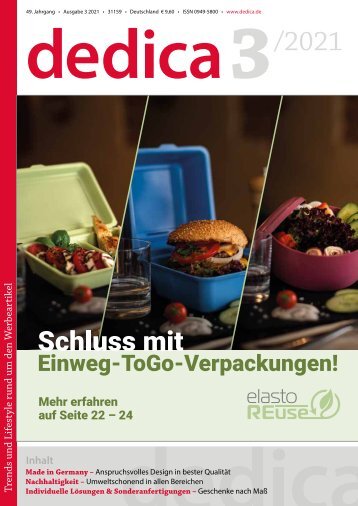food Marketing & Technology 5/2021
- Text
- Ingredients
- Marketing
- Products
- Processing
- Packaging
- October
- Germany
- Consumers
- Hygienic
- Pumps
- Harnischcom
Processing Exploring the
Processing Exploring the Growth of Plant-Based Milk According to The Vegan Society, the plant-based milk market in the UK was worth more than £230 million in 2019 – around 15% of the European market1, and the value of the market is predicted to more than double by 2025. By Matt Hale, International Sales & Marketing Director, HRS Heat Exchangers In fact, the plant-based milk market now accounts for around 10% of the total milk market, and the growing number of consumers of plant-based milks have more choice than ever before. The most popular plant-based milk in the UK is currently oat milk (which occupies almost a third of the market), followed by almond milk, coconut milk and soya milk. However, the sector is full of innovation, with new developments and products plantbased milk alternatives, or ‘alt-milks’ as they are sometimes known, are being made from more raw ingredients than ever before, with pea- and barleybased drinks being among the most recent newcomers to the market. There are many reasons for the popularity of plant-based milks. As well as a rise in the adoption of vegan and plant-based diets due to health and moral grounds, environmental concerns are also driving uptake with proponents claiming that plant milk has a lower greenhouse gas (GHG) footprint than dairy production – although the overall picture is highly complex, and the figures are disputed by the dairy industry. An apparent increase in the level of lactose intolerance in developed countries is also helping to increase demand. The range of plant-based milks also allows for consumers to express their tastes and identities as cafes and restaurants open-up after lockdown. As one industry analyst said earlier this year, “To choose your specific type of plant-based milk in Starbucks seems to be a way of identifying yourself.” While dairy milk has long been seen as a drink or a meal accompaniment, for example being used as an ingredient or with cereal, there are increasing signs that plant-based drinks, particularly those with a thicker more yoghurtlike texture or those sold in individual portions, are being seen as a healthy snack in their own right. Research by the Brisan Group2 suggests that up to a third of these products are viewed as a snack, and 61 per cent are viewed as ‘a treat.’ Globally soya milk products remain the most popular (although the demand for oat-based products is growing) and they accounted for 29.5% of revenue globally in 2019. Coconutbased beverages are one of the fastest growing segments, predicted to increase 8.6% between 2020 and 2027. Across all types of plant-milk, plain flavors dominate sales, accounting to 71.1% of the total value. Production of plant-based milk Contrary to public perception, the idea of plant-based milks is not new. ‘Milk’ made from soyabeans has a long history in China (where recorded production dates back to 1365), while almond milk was recorded in the Middle East in the 13th century. A commercial soya milk factory was established near Paris in 1910 and demand for soya milk rose through the 1970s and 80s due to increasing awareness of lactose intolerance. These days there is a wide range of plant-based milks made from nuts, grains and legumes, as well as other seeds (such as sunflower and hemp) or coconut. There are two main methods for processing plant-based milk: wet or dry. The wet process involves soaking and grinding the raw material in large volumes of water for up to 12 hours. In some cases, enzymes are added to hydrolyse starches (for example in oat milk production). The dry process involves milling the raw material into a flour or powder which is then processed to separate the starch, protein and fiber as desired, before being hydrated. As a result, dry production processes can result in a higher protein content in the finished product. The production method means that, if the soaked product is not ground to 36 food Marketing & Technology • October 2021
Processing sufficiently fine a size, the number of particles removed when the mixture is strained creates high levels of waste. It is also important to mix products well, particularly those containing oils or thickening or stabilising agents. Therefore, maintaining product consistency is a key goal for the manufacturing process, and will determine the choice of processing equipment including pumps, heat exchangers, etc. Disadvantages of plant-milk Plant-based milks cannot match the natural nutrition profile of dairy milk in terms of protein levels and essential amino acids. However, as well as being free of lactose, they are lower in saturated fat and cholesterol than non-skimmed milk. drink world Techn + Mark, 139,5 x 194 mm, Digitalisation M, CC-en91-AZ011 08/21 Plant-based milks are not immune from criticism, and in some countries and regions, including the European Union, such products cannot be sold or marketed as ‘milk’ or ‘yoghurt.’ In addition, supporters of dairy milk say plant-based drinks are highly processed and full of additives, while diary milk is simply homogenised and pasteurised. Despite this, such is the interest in the sector than many of the world’s largest dairy companies, including Lactalis, Nestlé and Danone, are investing into dairyalternatives, either through product development or company acquisition. A number of market analysts believe the market is ready for rationalisation, with a number of brands falling by the wayside or being acquired by larger food producers. Maintaining quality and demand The quality of the product is very important, and monitoring of key parameters includes viscosity, particle size, protein content, digestibility, nutrient content and flavor analysis. Maintaining these important quality characteristics food Marketing & Technology The future starts in our heads Discover our digital innovations at krones.com Key No. 100757 37
- Seite 1 und 2: 5/21 Vol. 35 • 31377 ISSN 0932-27
- Seite 3 und 4: Editorial Drinking your Daily Dairy
- Seite 5 und 6: Vol. 35 • 31377 ISSN 0932-2744 5/
- Seite 7 und 8: Cover Story fed into the pump,” e
- Seite 9 und 10: Ingredients Dietary fibers as Healt
- Seite 11 und 12: Ingredients The leading in-person a
- Seite 13 und 14: Ingredients rather short and brittl
- Seite 15 und 16: Ingredients a route to, among other
- Seite 17 und 18: Ingredients New Sports Nutrition In
- Seite 19 und 20: Ingredients Food Ingredients offers
- Seite 21 und 22: Ingredients IFT FIRST: Ingredient S
- Seite 23 und 24: Ingredients Efficient, reliable tes
- Seite 25 und 26: Processing SIMULATE WHOLE MUSCLE ME
- Seite 27 und 28: Processing Extended Power Range up
- Seite 29 und 30: Processing A collector conveyor has
- Seite 31 und 32: Processing together with a fast val
- Seite 33 und 34: Processing Online Moisture Measurem
- Seite 35: Processing During the smoking proce
- Seite 39 und 40: Processing When the transmission is
- Seite 41 und 42: Processing process becomes more tho
- Seite 43 und 44: Processing All-Seeing Solution Brin
- Seite 45 und 46: Packaging The relentless search for
- Seite 47 und 48: Packaging separate the loose kernel
- Seite 49 und 50: Packaging with the packaging system
- Seite 51 und 52: Packaging each critical FM object d
- Seite 53 und 54: Marketing Cama Group Celebrates 40t
- Seite 55 und 56: Events Success for PPMA as the Show
- Seite 57 und 58: Q4 2021 26-28 October Lagos, Nigeri
- Seite 59 und 60: Vol. 35 • 31377 ISSN 0932-2744 5/
Unangemessen
Laden...
Magazin per E-Mail verschicken
Laden...
Einbetten
Laden...






















